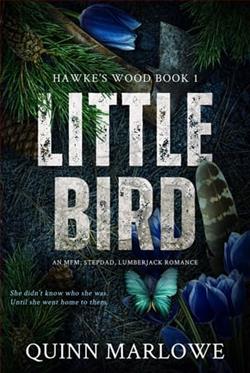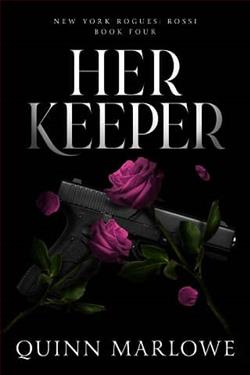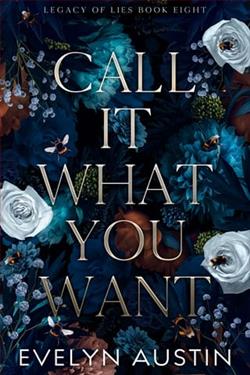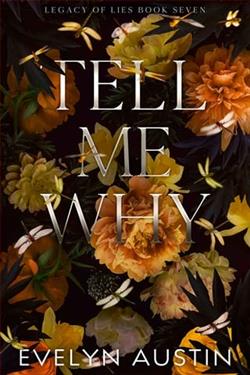Page 56 of Grave Matter
“Like what?” she interrupts.
“I don’t know. I have no idea. You keep talking about the research and the testing you’ve done in trials and all the amazing things that your fungus can do, but we haven’t seen it.”
“These things take time,” she says calmly. “I like to lay groundwork first.”
“So I’m right, then. This isn’t the real lab.”
She looks around. “Oh, we do work here,” she says before her gaze returns to me, a sly look in her green eyes. “But you are right. This isn’t the main lab. They’re downstairs.”
“There’s a downstairs?” I ask, surprised. “There’s more than one?”
“Would you like to see?”
“Well, yeah.”
“Come, then,” she says as she walks to the other end of the room toward that other door. “But promise me you won’t tell anyone. I don’t want the other students to think you’re getting preferential treatment.”
“I swear,” I say, making the sign of the cross over my heart. I know my Catholic grandmother will be watching me closely to make sure I don’t break it.
She takes out her key card from her lanyard and passes it over the door. It unlocks with a click, and she pulls it open to reveal a dark staircase. She steps inside, and motion detector lights flick on.
I follow her down the narrow stairs, my pulse quickening with excitement. Finally, I’m going to see where the real magic happens.
At the bottom of the stairs are two doors across from each other. I’m trying to map it out in my head with the shape and size of the building above, and it seems both rooms must continue underground beyond the learning lab’s foundation. I have to wonder if there’s a tunnel system of sorts.
She swipes her card at the door on the right and steps in, flicking on the lights beside her. This lab is twice the size as the one upstairs, filled with the hum of machines, many of which I’ve never seen before.
“I thought the lab was running all the time,” I tell her, surprised that it’s empty.
“It is,” she says. “The technicians are in the testing lab at the moment, across the hall. I would take you in there, but they aren’t to be disturbed.”
“Technicians,” I say slowly. “Like Dr. Carvalho?”
“Yes.”
“Who are the other technicians?” I ask because I have yet to see anyone on the compound that I haven’t recognized. “Dr. Wu?”
“Part-time workers,” she says. “They spend most of their time in the lab and live in the west lodge. That’s probably why you haven’t seen them,” she adds, as if reading my mind.
“Ah,” I say, glancing around the lab again.
“Can you imagine yourself working here?” she asks idly.
Weeks ago, I would have said yes with no hesitation. Now, I have to think about it. “I guess it depends what I would be doing.”
“Whatever it is you want,” she says. “If you play your cards right, there might be a job for you in the end. Imagine how that would solve all your problems. You’d live here, be paid very well, and you’d be ushering in groundbreaking research. You would leave your mark on the world for generations to come.”
Yes. All this research we still don’t know much about, and by design.
“How closeareyou to finding a cure for Alzheimer’s?” I ask her.
Her brows rise. “Very close. We have practically found the cure. It just needs perfecting before we can open up the trials.”
“But I thought you were already doing clinical trials.”
“Closed clinical trials,” she says. “We have been testing on animals.”
I make a face. “But Kincaid said…”















